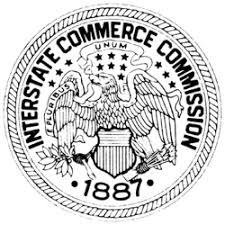
Interstate Commerce
Order Instructions:
1.Why was this case so important?
2.Why did the U.S. Supreme Court develop the “effects on interstate commerce” test?
3.Is most commerce considered “interstate commerce”? Why or why not?
SAMPLE ANSWER
Interstate Commerce
The Commerce Clause of the United States Constitution states that the Congress shall have the power to regulate interstate and foreign trade. The case was so important since commerce clause had never been construed in its narrow sense. The clause states plainly that, there is limited power to control trade between people in one country and people outside that country (Brown, and company, 1907,6).
The clause and the economy of the US has progressed and turned out to be very sophisticated. In addition, as soon as the congress engaged in addressing the social challenges in the country, the commercial law was used as the referencing point for any law that was passed. Consequently, the commerce law has developed into a very significant law for the congress for the last 50 years. The clause therefore is now one of the main referencing points for the congress authority (The Baldwin law book co, 1917,3).
Moreover, the commercial clause is very important in the US. This is simply because, a keen look at the US code clearly shows that approximately 700 provisions of the state which affect various issues revolve around interstate commerce. For instance, Supreme Court in United States v. Lopez and United States v. Morrison concluded that a gun possession law and a law concerning sexual violence were not the mandate of the congress to control. In another case Gonzales v. Raich, later confirmed the powers of the congress to control medical marijuana. The court decided that the consequences of the previous cases would be limited. The case of National Federation of Business v. Sebelius, which was challenging the role of a person to purchase health insurance, the court declared that commerce clause did not have a room for such provision. In Sebelius, the Court provided regulations in the instances where people had already chosen to involve themselves in commercial engagements (Washington : U.S. Govt,1910,7).
References
Washington : U.S. Govt. (1910). Hearings before the Committee on Interstate and Foreign , by HathiTrust)Commerce of the House of Representatives on bills affecting Interstate commerce. United States House Committee on Interstate and Foreign Commerce
Brown, and company, (1907). The Act to regulate commerce (as amended) and acts supplementary thereto, indexed, digested, and annotated, including the Carriers’ liability act, safety appliance acts, act requiring reports of accidents, Arbitration act, Sherman anti-trust act, and others, , by Charles S. Hamlin, United States, and statutes United States. Laws (page images at HathiTrust; US access only)
The Baldwin law book co., (1917)Gartner’s notes to the Interstate commerce commission reports : vols. 31 to 40, and part of vol. 41 and unreported cases complete (all cases to Oct. 1st, 1916) : a judicial history of every case decided by the Interstate Commerce Commission, together with a complete alphabetical table of cases reported / (Louisville, Ky. 🙂, by Karl Knox Gartner and United States. Interstate Commerce Commission (page images at HathiTrust)
We can write this or a similar paper for you! Simply fill the order form!




